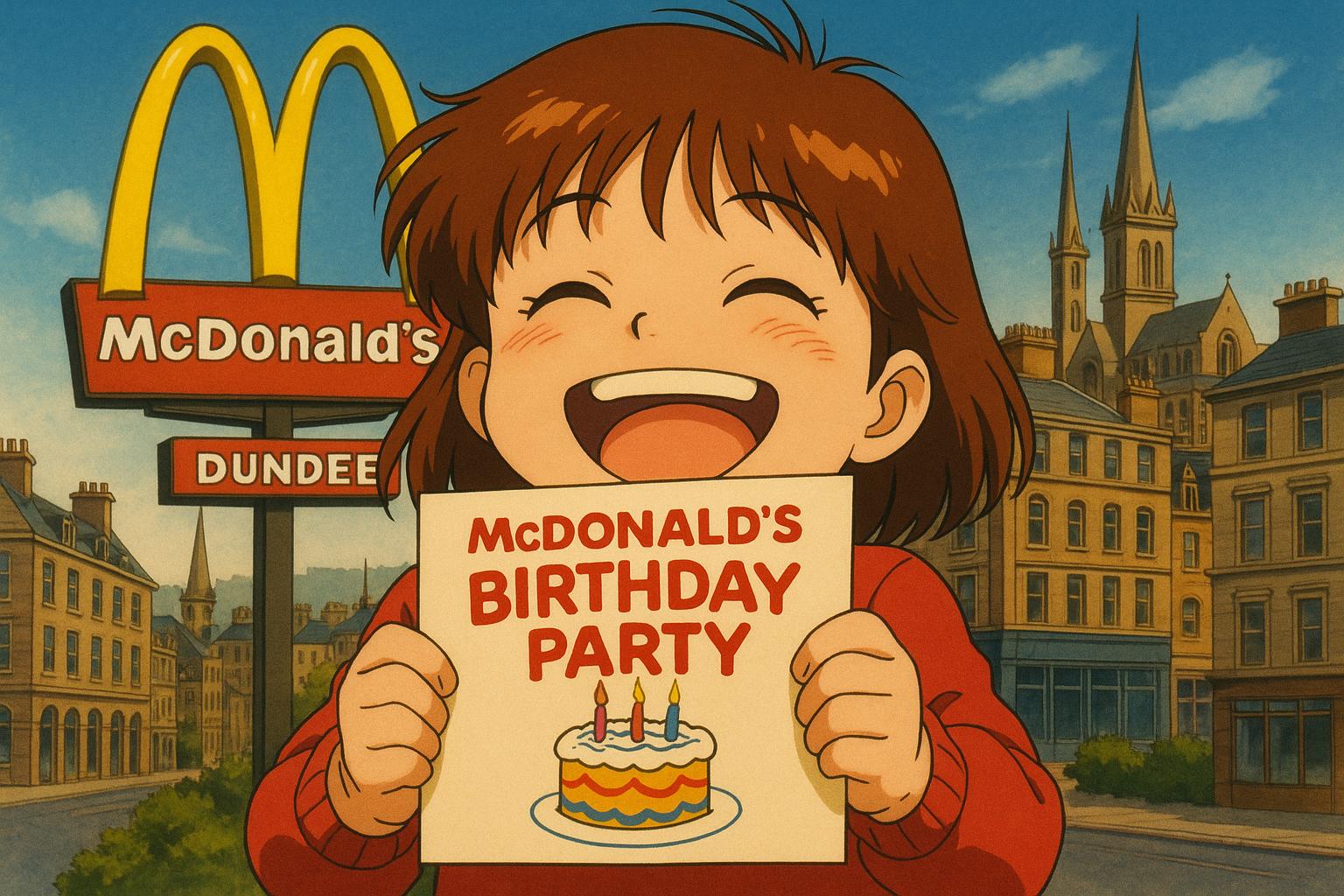It is December 3, 1987, and I have obtained a coveted invitation to the birthday party of Michelle Palmer, the first of our class to turn 11. The event is taking place at Scotland's inaugural McDonald’s restaurant, which opened its doors just ten days prior, resplendent with its Golden Arches on Reform Street in Dundee. The atmosphere buzzing with excitement, the smell of fries perfuming the air, and the gleaming chrome interiors were an adventure for a ten-year-old, and an experience I would carry vividly with me throughout my life.
Reflecting on that day, I can still remember the thrill of joining the queue, playfully rolling the unfamiliar terms "Quarter Pounder" and "large fries" off my tongue, as we navigated our first foray into a world that was hitherto unknown to us. Our enthusiasm reached its peak when Michelle’s mum announced we could choose anything on the menu. Her own two Big Mac meals set the stage for what would become a cherished tradition. Fast forward to the present, and McDonald’s continues to be a significant marker in childhood memories.
Recently, while driving home from filming, I was reminded of these nostalgic moments when Johnny Vaughan announced on Radio X that there was positive news surrounding McDonald's: it was reportedly deemed beneficial for those suffering from migraines, with anecdotal support suggesting that fries and a Coke could alleviate pain. Though the suggestion of making fast food a regular dietary staple would be an overstatement, many will agree on the relief a trip through the drive-thru can bring in our busy lives.
Since that momentous opening in 1987, McDonald’s has endured its fair share of criticism, from labour disputes to health-related scandals, yet it has continually found ways to recover. Remarkably, the restaurant in Dundee accounted for the second busiest opening week in McDonald’s UK history at that time, necessitating additional staff and stock due to the fervent demand, a level of enthusiasm that, while perhaps difficult to replicate, underscores the brand's presence in the collective memory.
The cultural significance of the Dundee branch illuminates how it has transcended mere fast food to become a cherished parental reward. Many parents, from Fintry to the Ferry, still echo similar words: “Do your homework, be good, and we might just swing by McDonald's tomorrow.” This notion of McDonald’s as a treat after school or sport reinforces its role as more than just a restaurant; it has become integrated into familial traditions.
As our society assimilates various trends, I often voice my concerns over Americanisations seeping into our language. However, the influence of McDonald's has shown that some American ideals—revelry in celebrations, for instance—can be welcomed in moderation. The restaurant that once burst onto the scene in 1987 has not only survived but thrived, now firmly establishing itself in Dundee, where it has provided countless locals with their first jobs, many of whom advanced to managerial positions.
Today's children, just like the girl I once was, beam with joy after hearing the words “let's go to McDonald's.” Both then and now, this simple phrase can invoke a sense of delight that transcends time. Nearly four decades later, the presence of McDonald’s continues to be a mainstay, offering a blend of nostalgia and novelty for both parents and children alike.
In the ever-evolving landscape of the food industry, McDonald's remains steadfast, serving as a reminder of how a single restaurant can change not only culinary preferences but also become embedded in the fabric of family life, catering to both the tastes and aspirations of generations.
Source: Noah Wire Services
